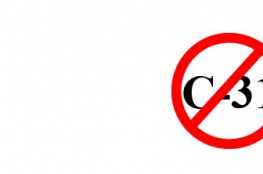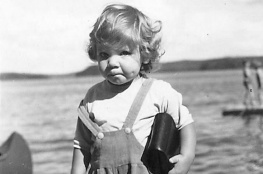If my first thought when hit Nanaimo General was Thank God for Tommy Douglas, and my second was Thank God I got the first chapter written, my third thought was a Holy Shit. It came after I had been there a couple of weeks and I tumbled to the idea that OHIP and my extended medical insurance not not cover everything. That was the day the head nurse popped in to see how many outlets my room had for oxygen. More than enough, apparently so I was going to have to move. Did that mean being downgraded from a private room? If so, what was I covered for? Not having my files with me I called my insurer, and punched in Jason’s local. He picked up the phone. I filled him in on the situation, he quoted back the coverage and said he’ll get back with more details. “Just call any time, and here’s my cellphone number.”
A couple of hours later, a pot of yellow flowers arranged in a huge yellow coffee mug with a happy face on it arrived with a note saying, “Stay positive and strong. Hope this puts a smile on your face!” It did. It was from Jason and the AFBS. That’s the insurance program run by ACTRA, the TV and radio actors’ union which has collaborated with other smaller unions like mine — the Writers’ Union of Canada — to offer health coverage to other self-employed artists. I was moved to another private room and remained in isolation, and didn’t hear anything more about coverage until I was discharged. The nurse giving instructions on how to work the portable pump and reload the bags of penicillin suggested I should check with OHIP to see if they pay for the drugs I’d be taking intravenously for another month, and the Community Care nurses who’d be checking on me every three days. If they didn’t, I could well be seeing a hefty bill down the line.
I was stunned. My heart sank as I knew I was in for several days of bureaucracy wrangling. Bottomless phone conversations with social workers and administrators, plus backup conversations with Jason. Not exactly what you need to be doing as you’re getting over a catastrophic infection. I discovered that no one in the hospital or the bureaucracy actually knew the answer to the coverage question which is complicated exponentially by (a) differences between provincial systems, and (b) the various side-agreements between them. (Did I know Ontario stops paying for seniors’ drugs at the provincial border?) Certainly everyone on the medical side, doctors and their assistants, specialists and theirs, was surprised to learn I might have to pay for my out-patients care — set up for the sole purpose of getting people out of hospitals to save money! They’d never heard of such a thing.
Eventually I ascertained that the penicillin would not be covered by OHIP once I left hospital. But was by AFBS, up to $3000. By then I was curious. How much was it going to be? Could it possibly be more than that? The hospital pharmacy scratched its head for several days and, when pressed, finally declared the Penicillin didn’t cost enough for them to spend the administrative time billing me. As for the nurses, the social worker stated I would absolutely would not be covered, that I’d have to hire privately. The community nurses, however, were absolutely sure I was part of their program. (No bill has yet arrived, so it appears they were right.) Apaprently, it paid to ask questions. It was exhausting but when I asked for help I got it, and was able to make it through the thicket of conflicting rules unscathed.
Conclusions? If you need to be in hospital it not only pays to bring your own food, it pays to have an insurer like AFBS who answers the phone (and sends flowers). Most of all, I think, it pays to have your faculties about you, to speak English and the strength to ask questions. My Blue Moon luck was that I was basically healthy and in good shape when I landed in hospital. And once there I was neither a difficult case nor a demanding patient. I had a lot to fight with.

